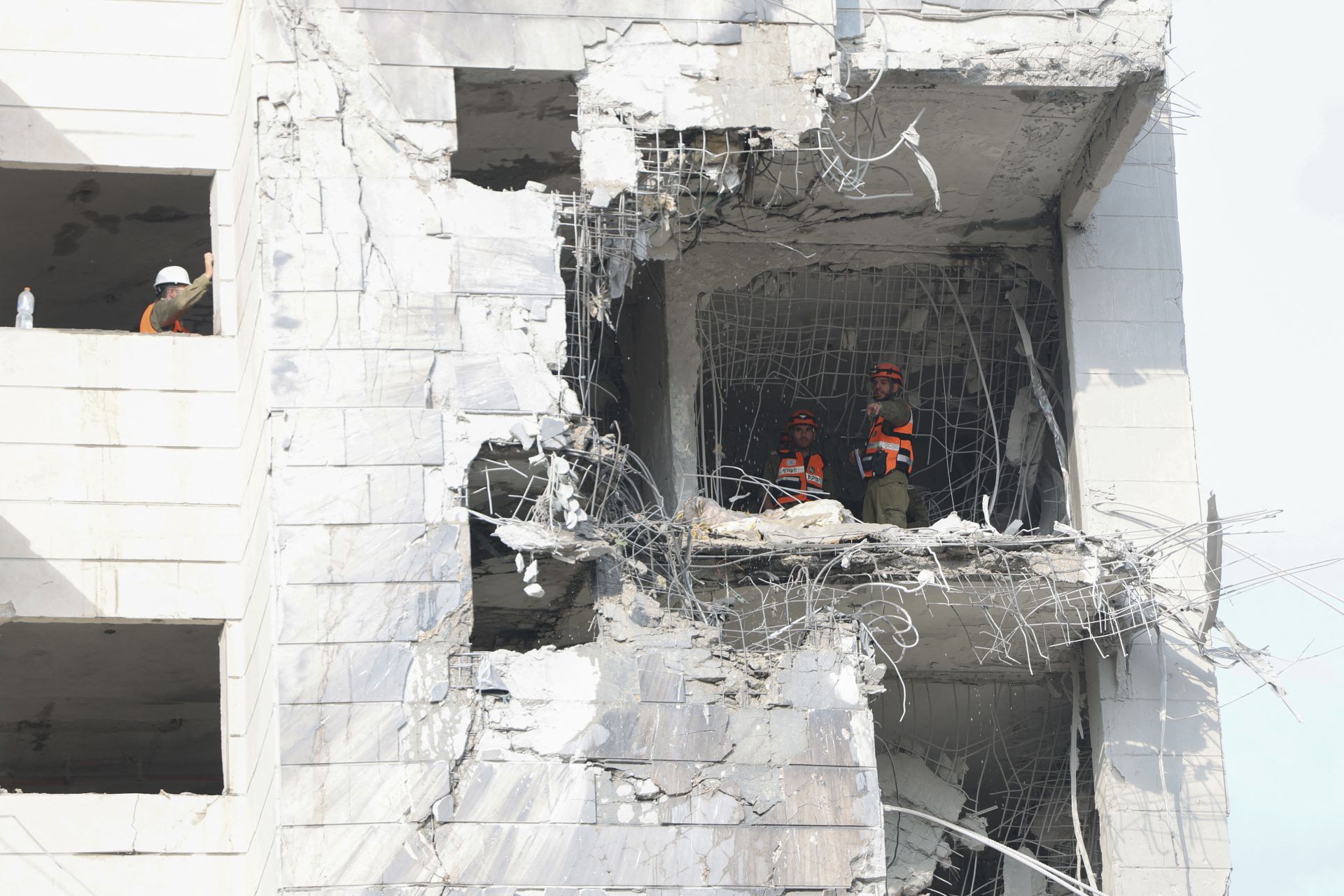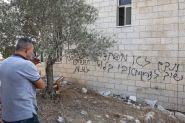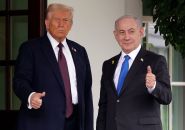- Home
- Middle East
- Israel, Iran: Day 4 of Strikes

Responders inspect a damaged building following a strike by an Iranian missile in the Israeli city of Petah Tikva, east of Tel Aviv, on June 16, 2025. ©Jack GUEZ / AFP
The conflict between Iran and Israel entered its fourth day on Monday, with continued missile exchanges, mounting civilian casualties, and growing international concern as G7 leaders convene in Canada to address the crisis.
In the early hours of Monday morning, a new wave of Iranian missiles targeted multiple locations across Israel, triggering nationwide air raid sirens. Red alerts were issued in major cities including Tel Aviv and Haifa, where missiles – reportedly fired from Isfahan – struck urban centers. Loud explosions were heard over both cities as Israeli air defense systems attempted to intercept the incoming projectiles.
Media reports claim that fires were seen at a power plant near Haifa following Iranian missile strikes on port infrastructure. The attack reportedly involved two hypersonic missiles, launched shortly after Israel hit Iranian surface-to-surface missile sites.
Israeli media reported that more than 100 missiles were launched during the assault, with explosions registered near Ben Gurion Airport, in Eilat, and in areas west of Jerusalem. At least six missiles are believed to have struck Tel Aviv and Haifa, damaging residential buildings and knocking out power in several northern neighborhoods. A power plant in Haifa was also hit. According to the news outlet Al-Hadath, at least six people were killed and 100 others wounded.
In Petah Tikva, in central Israel, several shelters were reportedly destroyed by an Iranian missile. Emergency crews have been deployed across all targeted cities.
In the moments before the missile barrage, Israel’s Home Front Command had advised residents in vulnerable areas to stay close to shelters. Following the strikes, Israeli authorities confirmed that air defense systems were activated and instructed the public to remain indoors. Within 30 minutes of the launch, the military declared that the immediate danger had subsided.
Iran’s Islamic Revolutionary Guard Corps (IRGC) claimed the strikes employed a new tactic that allegedly disrupted Israel’s advanced multi-layered defense system, causing elements of the system to inadvertently target each other. In a statement, the IRGC insisted that the operation inflicted “maximum damage” despite Western military support for Israel.
During a visit to the site of a deadly strike in Bat Yam on Sunday, Israeli Prime Minister Benjamin Netanyahu warned: “Iran will pay a very heavy price for the premeditated murder of civilians, women, and children.”
The Israeli army says its air force has attacked the Quds force headquarters in Tehran.
The latest escalation follows a weekend of intensified hostilities. On Sunday, Iranian state media confirmed that the intelligence chief of the Revolutionary Guards, Mohammad Kazemi, and his deputy were killed in Israeli airstrikes on Tehran. Prime Minister Benjamin Netanyahu later stated in an interview that Israel had "taken out" both officials.
According to Iranian state media, the head of IRGC intelligence, Mohammad Kazemi, and his deputy were killed in Israeli airstrikes on Tehran. Iranian officials contest Israel’s claim that its attacks have been “surgical,” citing a rising civilian death toll.
Meanwhile, Iran claimed to have uncovered a covert Israeli drone assembly facility in Shahr-e Ray, south of Tehran. Authorities say they found over 200 kg of explosives and homemade bombs in a three-story building allegedly used by Mossad agents for storing and launching drones inside Iranian territory.
Diplomatic Efforts Underway
On the diplomatic front, US President Donald Trump weighed in, stating that he believes a peace agreement between Israel and Iran is achievable. Posting on Truth Social, Trump wrote: "We will have PEACE, soon," but warned that any attack on the US would be met with an overwhelming response. Reuters had reported that Trump also recently rejected an Israeli plan to assassinate Iran’s Supreme Leader Ayatollah Ali Khamenei.
International reactions have been swift. The European Union has scheduled a video conference for Tuesday among its foreign ministers to discuss the deteriorating situation. The meeting, convened by EU foreign policy chief Kaja Kallas, is expected to focus on de-escalation measures and humanitarian concerns.
The conflict has also overshadowed the G7 summit in Canada, where leaders are expected to confront the implications of the regional war.
Casualties
Israel's Magen David Adom emergency service said 8 people were killed and 92 wounded Monday in Iran's latest missile strikes on the country, raising a previous toll of four deaths.
The casualties were from strikes on four sites in central Israel, the MDA said in a statement.
In Iran, Israeli strikes have killed at least 224 people and injured more than a thousand, with an estimated 90% of the victims being civilians, the Iranian Ministry of Health announced on Sunday.
Read more



Comments